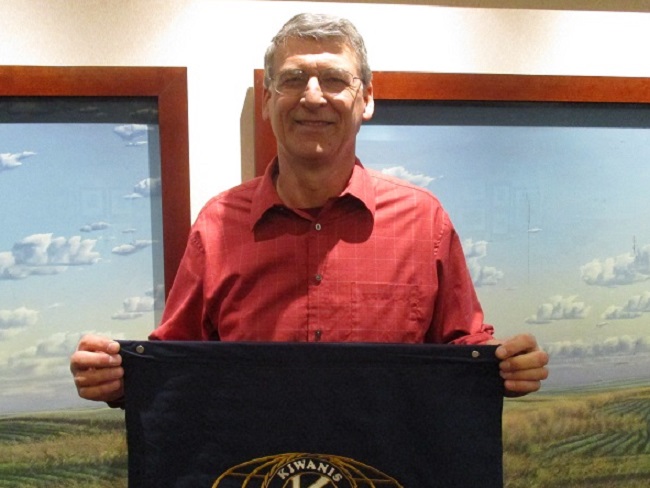
Agriculture has been a very important part of Iowa’s economy even before Iowa became a state in 1846. In the Perry area, agriculture is still king in terms of its impact on the local economy. In politics and the media, the impact of farming on water quality is a passionate issue for many farmers and environmentalists.
Tom Vincent, a 16-year member of the Perry Kiwanis Club and local farmer, recently shared his own passion with his fellow Kiwanians by discussing his work on improving water quality on his farms.
Vincent and his wife, Georgia, came to Perry in 1990. They have a daughter and son. Many of you will remember that Vincent worked with the Brenton Bank in Perry. In 1994 he first began working in agriculture and eventually went into farming full time.
The Vincents own and lease land west of Perry.
Vincent said agricultural equipment has changed a lot even in the past 10 to 12 years. Equipment is more effective, and the need to till soil has greatly decreased. This along with the reduction of fertilizer inputs to farmland is known as value-added agriculture. Vincent is looking at no-till beans for his land.
He said he grows soybeans for seed for Monsanto and sells nearly all of the corn that he raises to nearby ethanol plants.
Vincent reported that 75 percent of the earth is covered with water, and 25 percent is covered by land. Less than 3 percent of the world’s water is suitable for drinking, and about 4 percent of the earth’s land is suitable for growing food and fiber.
Soil naturally contains 10,000 pounds of nitrogen per acre. Vincent said that, on average, farmers add 200 pounds of nitrogen to the soil they farm. He said agriculture is part of the problem in terms of nitrates running off into area water, but a great part of the nitrogen pollution occurs naturally.
Vincent has been working for many years with the Iowa Soybean Association to help reduce runoff into area water supplies. He has installed saturated buffers on his lands, which contain grasses and other plant life that help absorb water and filter out nitrogen before it reaches water supplies.
He also has installed bio-reactors that contain nitrogen-absorbing wood chips. These wood chips last eight to 10 years before they need to be replaced, he said. This helps to reduce nitrogen runoff by 43 percent.
Vincent said there are 1,600 watersheds in Iowa. The Iowa Soybean Association is currently developing strategies to help reduce pollution in farm-related water runoff.
Vincent has been a member of the Perry Kiwanis Club since Sept. 1, 1991, according to club records.

















